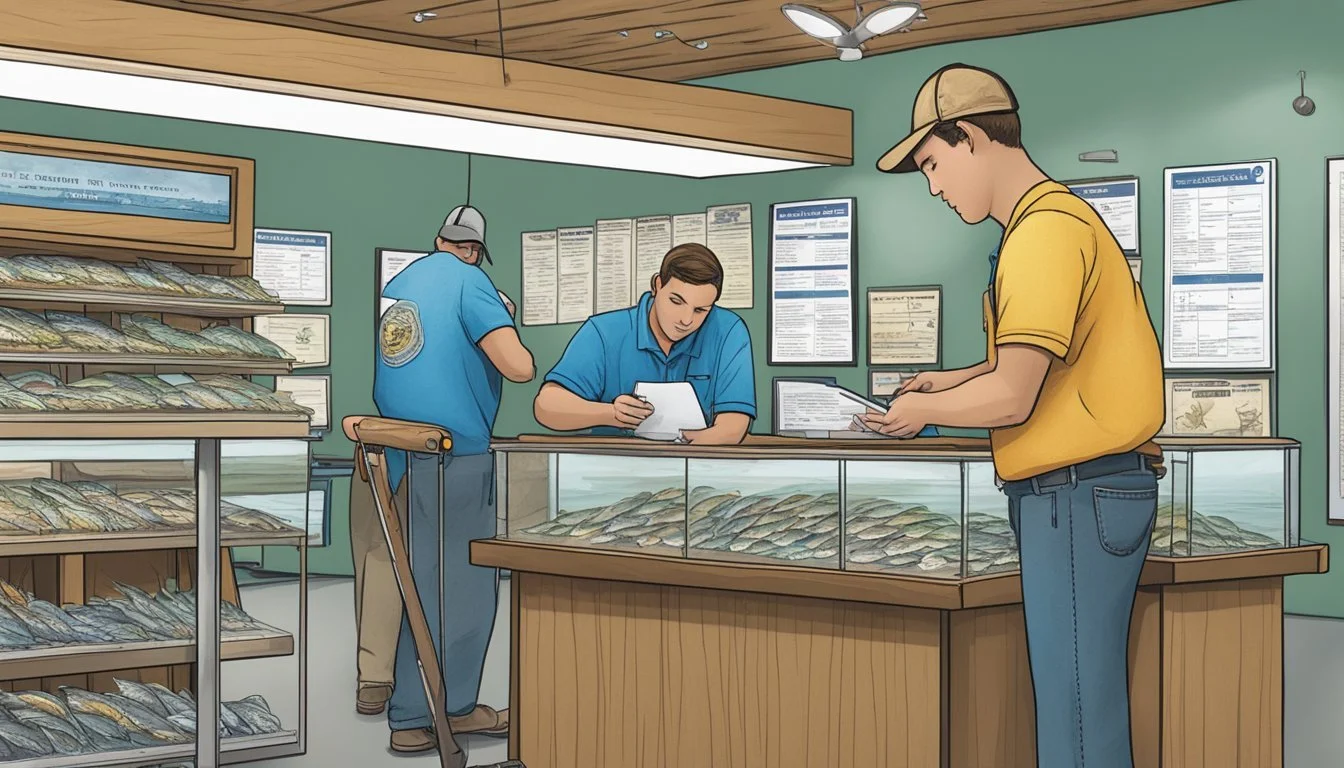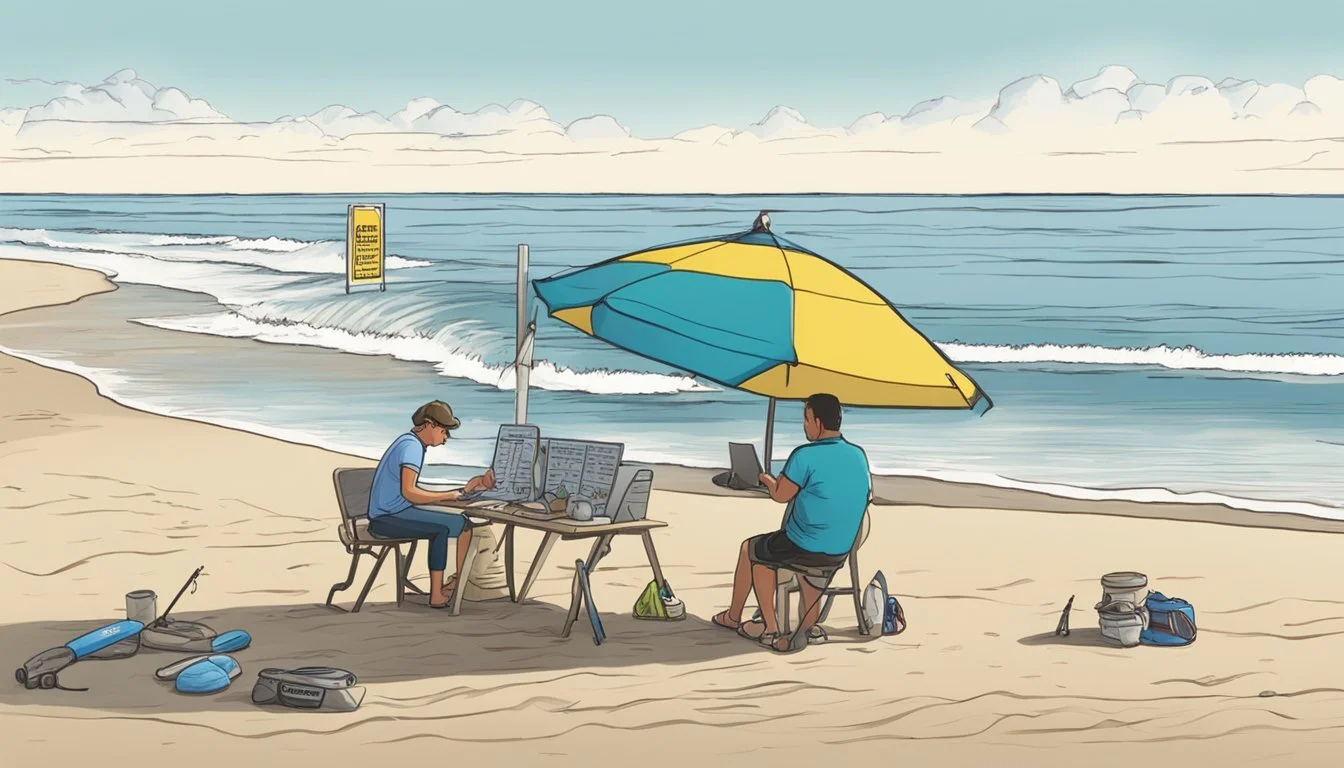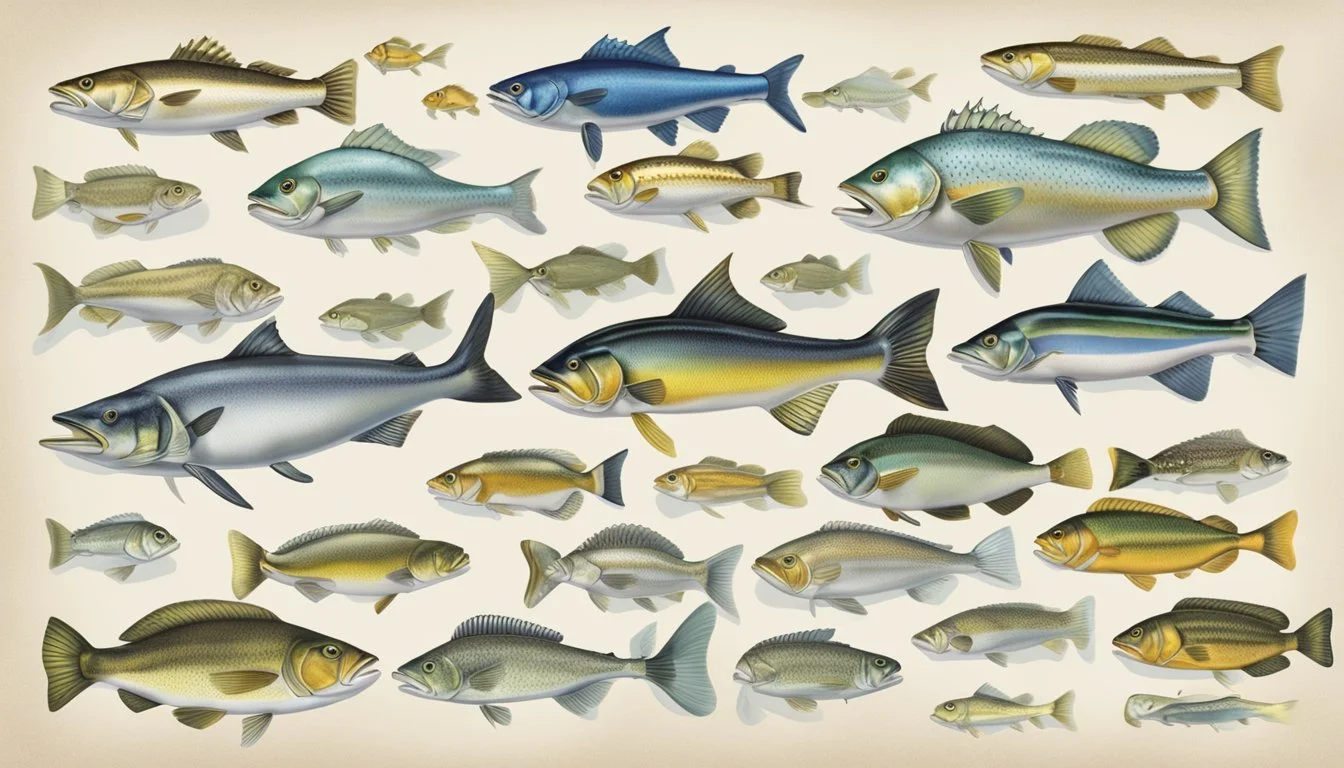How to Get a Delaware Saltwater Fishing License
A Step-by-Step Guide
For individuals looking to cast a line in the Delaware waters, obtaining a saltwater fishing license is a requisite step in compliance with state regulations. Both residents and non-residents aged 16 and over are required to secure this license to fish (What wine goes well with fish?). Delaware offers its anglers the ease of acquiring licenses online through the Digital DNREC system or in-person at an authorized license agent. This ensures that both the casual and avid fisherman have convenient access to legal fishing activities.
The state provides a variety of license options to suit different fishing requirements. Annual resident and non-resident licenses, temporary licenses for short-term anglers, and boat fishing licenses cater to every individual's needs. Additionally, specialized licenses such as head boat, charter boat, and fishing guide licenses are also available. These varied options bear different fees and are designed to accommodate personal preferences and fishing practices.
Understanding the specifics of Delaware fishing licenses, from the cost to the process of purchase, is crucial for any angler planning to enjoy the state’s marine bounty. Delaware's effort to manage its fisheries resources and wildlife conservation is intertwined with the licensing system, underlining the importance of following the established guidelines. Compliance with these regulations not only contributes to sustainable fishing practices but also enhances the fishing experience by promoting ethical angling.
Understanding Delaware Fishing Licenses
In Delaware, individuals planning to fish in saltwater areas must comply with the state's licensing requirements. These are designed to both conserve fish populations and ensure the best experience for anglers.
Categories of Licenses
Delaware offers two primary types of saltwater fishing licenses:
Individual Fishing License: This is required for a person fishing alone or with others who do not hold a license.
Boat Fishing License: This covers all individuals fishing from a licensed vessel, making it a suitable option for boat owners who frequently host guests.
Resident vs. Non-Resident Licenses
Resident Licenses are available to those who can prove residency in Delaware. They typically cost less than licenses for non-residents. Non-Resident Licenses are required for those who live outside of Delaware but wish to fish in the state's waters.
Age-Based Exemptions and Requirements
Delaware fishing license requirements are influenced by the angler's age:
Under the Age of 16 or Over 65: Delaware residents below 16 or above 65 are exempt from the need for a fishing license.
Between 16 and 64: Individuals aged 16 to 64 must obtain a valid fishing license.
These stipulations ensure that Delaware effectively manages its marine resources while granting appropriate exemptions.
Where to Purchase a Delaware Fishing License
Obtaining a Delaware fishing license is a straightforward process, made accessible through multiple channels managed by the Delaware Department of Natural Resources and Environmental Control (DNREC). Anglers can choose from online services to local agents to suit their convenience.
Online Purchasing Through DNREC
Anglers looking for convenience can purchase their Delaware fishing license online via the Digital DNREC ePermitting system. This platform allows for a smooth transaction and immediate issuance of the required fishing license. The online system ensures that all pertinent regulations and fees are clear and up-to-date.
Local Licensing Agents
Those who prefer in-person transactions can visit local licensing agents throughout Delaware. These agents are authorized to sell DNREC fishing licenses and can provide personalized assistance. They are ideal for fishermen who may have questions or need additional resources while obtaining their license.
Boat Fishing License Options
For anglers who fish from boats, there are specific licenses available. The boat fishing license covers all individuals fishing from the registered vessel. There are different fees based on the size of the boat, and these can also be purchased online through the Digital DNREC system or at local licensing agents. Licenses are available for boats 20 feet or less, as well as for boats longer than 20 feet, ensuring that all boating anglers are compliant with Delaware's fishing regulations.
Surf Fishing Vehicle Permit
To engage in surf fishing in Delaware, it is required to have a Delaware surf fishing vehicle permit, which allows access to designated beaches and serves as a pass for fishing activities. This permit has specific regulations and is necessary to drive a vehicle on designated state park beaches for fishing purposes.
Understanding Surf Fishing Regulations
In Delaware, regulations stipulate that a surf fishing vehicle permit is obligatory for driving on specific beaches intended for surf fishing. These regulations are strictly enforced to ensure that vehicle use on beaches is limited solely to those actively engaged in surf fishing. Vehicles are expressly prohibited from using these areas for any other activities, such as general beach driving or sightseeing.
Key points:
Vehicle Restriction: Vehicle access is only for actively engaged surf fishers.
Designated Areas: Only in areas managed by the Division for surf fishing.
How to Acquire a Vehicle Permit
Obtaining a Delaware surf fishing vehicle permit requires visiting any state park office or the DNREC's Dover campus during business hours. Alternatively, starting from a specified date each year, such permits can be purchased online. It is important to note that sales for the subsequent year typically begin towards the end of the current year.
Steps to obtain the permit:
Visit a State Park Office or DNREC's Dover campus.
Purchase Online when available for the upcoming year.
Surf Fishing at Delaware State Parks
Surf fishing vehicle permit holders are allowed to fish at designated Delaware State Park areas which include Cape Henlopen, Delaware Seashore, and Fenwick Island State Parks. For each park, dune crossings are specifically marked for vehicle access to fishing spots. As part of the management of these activities, daily reservations might be required during peak times, and vehicle-specific information will be necessary to secure a spot.
Delaware State Park details:
Areas: Cape Henlopen, Delaware Seashore, Fenwick Island.
Access: Designated dune crossings for vehicle entry.
Daily Reservations: Required during peak times with permit, vehicle make, model, and license plate information.
Additional Permits and Stamps
When obtaining a Delaware saltwater fishing license, one should be aware that certain fishing activities may require additional permits and stamps. These enhance the fishing experience while contributing to the conservation efforts.
Trout Stamp Requirements
In addition to the saltwater fishing license, anglers targeting trout are mandated to have a Trout Stamp. This stamp is compulsory for all fishers aged 16 to 64, regardless of whether they are Delaware residents or non-residents.
Fishing in State Wildlife Areas
To fish within Delaware's State Wildlife Areas, a Conservation Access Pass is required for any vehicle entering these lands. This pass helps to fund the management and maintenance of these natural habitats, ensuring they remain optimal for wildlife and recreational activities.
Combination Licenses for Hunting and Fishing
Delaware offers combination licenses for individuals who participate in both fishing and hunting. A combination license simplifies the process, as it includes the saltwater fishing license, a general hunting license, waterfowl stamps, and eligibility to apply for deer tags. This is ideal for those engaged in comprehensive recreational hunting and fishing throughout the state.
Regulatory Information
Navigating the regulatory landscape is essential for anglers wishing to fish in Delaware's saltwater environments. This includes understanding the local regulations, knowing about the Fisherman Information Network (FIN) number, and distinguishing between tidal and non-tidal water regulations.
Understanding Local Regulations
The State of Delaware requires anglers to abide by specific fishing regulations to maintain fish populations and ecosystem health. These regulations outline details such as season dates, size, and creel limits. Recreational fishers must ensure they are familiar with these rules before heading out to fish.
Fisherman Information Network (FIN) Number
A FIN number is mandatory for saltwater anglers and is intended to help manage the fishery resources. When an individual purchases a Delaware fishing license, a FIN number is automatically generated and provided. However, non-residents and those exempt from the license requirement must obtain a FIN number prior to fishing in Delaware waters.
Regulations for Tidal and Non-Tidal Waters
There are distinct regulations for fishing in tidal versus non-tidal waters within the state. Tidal waters typically refer to areas where the water level is influenced by the tides, whereas non-tidal waters are not affected by tidal changes.
Tidal Waters: Anglers must follow specific size and creel limit regulations, which are often updated seasonally.
Non-Tidal Waters: Although similar regulations apply, there may be different size or creel limits, and it's crucial for anglers to verify these before fishing.
Anglers must observe these regulatory differences to comply with Delaware's conservation efforts and to avoid penalties for non-compliance.
Special Fishing Activities
In Delaware, special fishing activities like charter excursions, recreational shellfish harvesting, and engagement with aquatic education not only enhance the fishing experience but often require specific licensing and adherence to state regulations.
Charter and Head Boats
Interested anglers can embark on fishing trips through charter boats or head boats, both offering unique fishing opportunities in Delaware's waters. To operate a charter boat, captains must possess a charter boat license, which ensures adherence to regulations and safety standards. Head boats are larger vessels designed for groups and also operate under a specific head boat license.
Recreational Crabbing and Clamming
Recreational crabbing and clamming offer a distinctive way to enjoy Delaware's waterways. Individuals partaking in crabbing should note the size and catch limits to sustain the crab (What wine goes well with crab?) populations. Clamming enthusiasts are required to follow the guidelines that dictate the minimum size and quantity of clams (What wine goes well with clams?)harvested, ensuring the preservation of aquatic life.
Aquatic Education and Conservation Programs
Delaware offers various aquatic education programs that foster conservation awareness and encourage responsible fishing practices. These programs may include hands-on activities such as fishing clinics or seminars, contributing to the overall health and sustainability of the state's marine ecosystems. Participants typically learn about the regulations and techniques for responsible fishing, aiming to enhance both the enjoyment and the future of Delaware's marine resources.
Relevant Agencies and Resources
When acquiring a Delaware saltwater fishing license, a few essential agencies and resources provide all the necessary information and services. These entities are specifically mandated to facilitate fishing activities and ensure the maintenance of marine life and habitats.
Department of Natural Resources and Environmental Control (DNREC)
The Department of Natural Resources and Environmental Control (DNREC) is the primary organization overseeing fishing licenses in Delaware. Anglers can purchase licenses online through the Digital DNREC platform or in-person at the licensing desk within DNREC’s Richardson and Robbins Building, located at 89 Kings Highway SW, in Dover.
DNREC Division of Fish and Wildlife
Part of DNREC, the Division of Fish and Wildlife, offers a variety of licenses, including those for saltwater fishing. They ensure that anglers meet safety education requirements and also provide the option to purchase and print relevant documents like fishing licenses and Fisherman Information Network (FIN) Numbers through their online portal.
National Marine Fisheries Service
The National Marine Fisheries Service (NMFS), while not directly involved in the issuance of state-level licenses, plays a critical role in managing federal marine resources. Anglers should be aware of any additional federal regulations, specifically if fishing for species that are regulated at the federal level, like certain highly migratory species.
Fish Species and Conservation
Delaware waters provide a habitat for a diverse range of fish species, and it is essential that conservation and sustainable fishing practices are in place to ensure the health of fisheries and recreational landings for future generations.
Common Species in Delaware Waters
Delaware's water bodies are teeming with both freshwater and saltwater species. Saltwater anglers often target striped bass, bluefish, and flounder which are prevalent in the state's coastal and nearshore waters. In freshwater systems, largemouth bass, catfish, and perch are commonly pursued by recreational fishers.
Conservation and Sustainable Fishing Practices
Sustainable fishing practices are vital in maintaining fish populations at healthy levels. Anglers are encouraged to follow established bag limits and size restrictions, which are designed to allow fish species to thrive. For instance, striped bass regulations are put in place to ensure the long-term sustainability of this prized species. Catch and release is also promoted, particularly for species that are not intended for consumption.
Fisheries Management and Recreational Landings
Fisheries management in Delaware involves monitoring and regulation of the state's marine resources to prevent overfishing and habitat degradation. Accurate data on recreational landings are essential for managing fish stocks effectively. Fisheries managers use this information to set quotas and update regulations to balance the needs of the ecosystem with the interests of anglers, ensuring future fishing opportunities.









